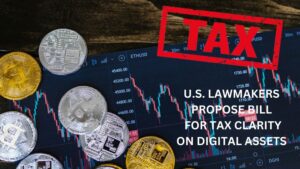Key Takeaways:
- Binance filed its response to the CFTC’s September lawsuit.
- In March, the regulator sued Binance over unregistered derivatives.
Cryptocurrency exchange Binance has renewed its challenge against the Commodity Futures Trading Commission (CFTC) on Monday, asserting that the regulatory body is exceeding its authority.
Binance is facing growing regulatory scrutiny as the CFTC pursues charges related to the alleged offering of unregistered crypto derivatives to U.S. customers. In a complaint filed in March, the CFTC claimed jurisdiction due to the derivatives being tied to commodities.
Binance had been accused of facilitating illegal trading of derivative orders on commodities for U.S. citizens. While this lawsuit initially impacted Binance’s share of perpetual futures trading during U.S. hours, the effects appear to have diminished six months later.
Binance’s argument centers on the assertion that the CFTC is attempting to regulate an entity that, on paper, has tried to avoid U.S. business. It suggests the CFTC is employing “broad arguments” to extend its control over derivatives-related crypto activities worldwide.
Furthermore, Binance has urged the court to consider the “inflammatory language” used by the CFTC in its lawsuit against Binance and its CEO, Changpeng Zhao, known as “CZ.”
The exchange filed its latest response in an Illinois court on October 23, in response to the CFTC’s filing from the previous month.
According to recent data analysis by Kaiko, Binance’s trading volume in the hours leading up to the lawsuit accounted for approximately 45% of its daily average volume. Six months after the CFTC lawsuit, trading during these hours has risen to 46% of the total daily volume.
Trading volume continues to surge at the commencement of U.S. trading hours, comprising 46% of the daily average volume. It’s essential to recognize that the cryptocurrency markets operate around the clock. As a result, U.S. trading hours are employed as a proxy to estimate the general trading activity, assuming that traders largely operate during these hours. Given the anonymity of trade data, determining the specific location of individual crypto traders remains a challenging task.
Binance asserts that its U.S. operations are distinctly segregated through Binance.US. The exchange contends that only its domestic division falls under the jurisdiction of U.S. regulators.
While grappling with regulatory challenges from agencies such as the Securities and Exchange Commission, Binance is confronting the CFTC case. In the face of mounting global regulatory scrutiny, the cryptocurrency giant is pushing back against what it perceives as overly expansive attempts to enforce U.S. regulations on an international scale.
At present, the exchange is challenging the CFTC’s assertion of global jurisdiction in the derivatives case. Nonetheless, Binance emphasizes that it is not seeking to evade appropriate regulation.











